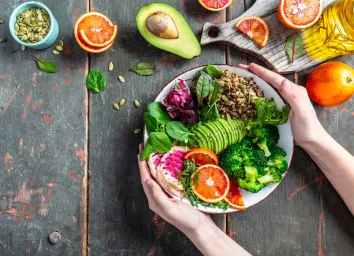The Worst Drinking Habits if You Have Diabetes, Say Dietitians
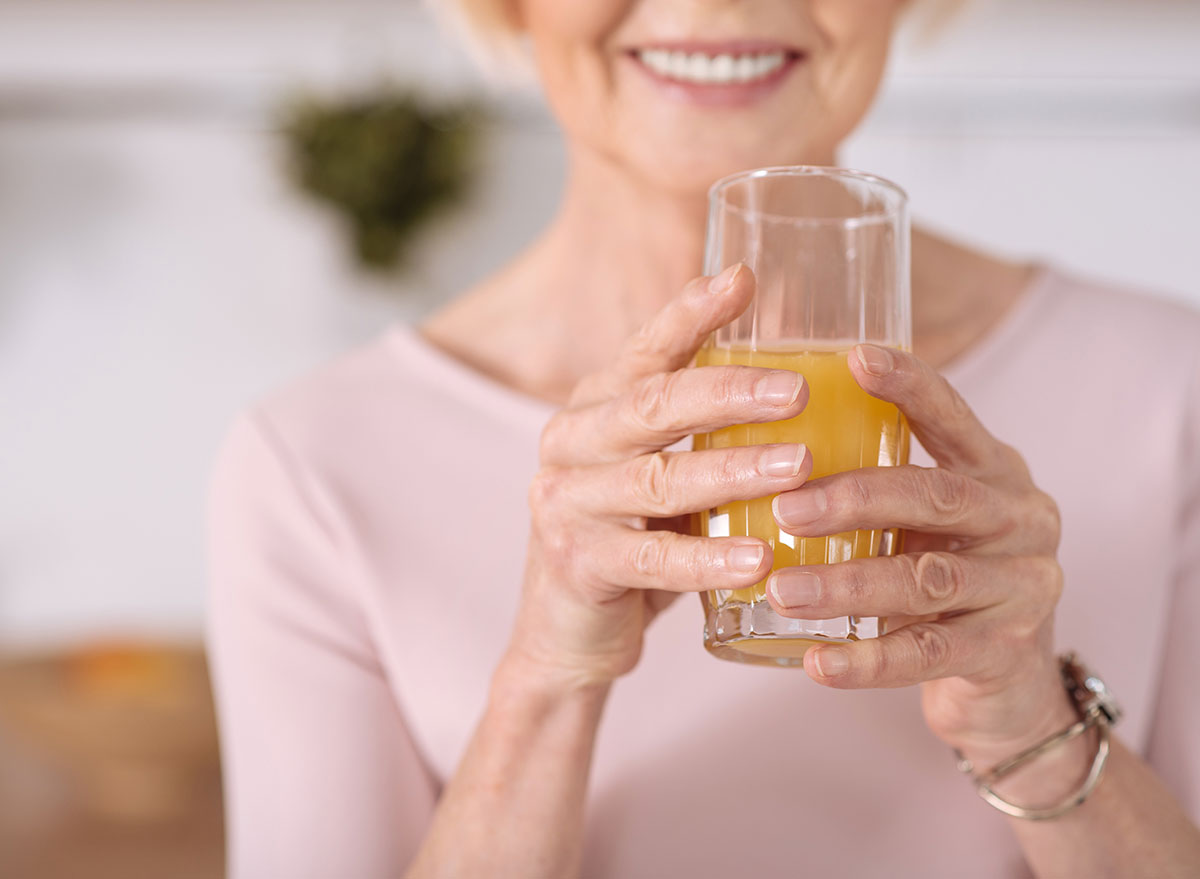
Lifestyle factors, such as being inactive and overweight or obese, are major promoters of diabetes and can cause the disease to appear decades earlier than the age of 65 years—an age group that has the highest percentage of diagnosed diabetics.
You may not realize, but a major source of sugary calories that increases the risk for diabetes is drinks, according to a review of 36 studies in the Journal of the Endocrine Society. “Our analysis revealed that most epidemiological studies strongly show that frequent intake of these (sugar-sweetened) beverages contributes to the onset of metabolic syndrome, diabetes, and hypertension,” said senior author of the study M. Faadiel Esspo, PhD, of Stellenbosch University in South Africa in a press release.
What that suggests for you is it’s time to pay attention to your drinking habits. These are the worst of all drinking behaviors to have if you are diabetic or your body is on the verge of becoming insulin resistant. Read on, and for more on how to eat healthy, don’t miss The #1 Best Juice to Drive Every Day, Says Science.
Having a large sweet tea with your lunch
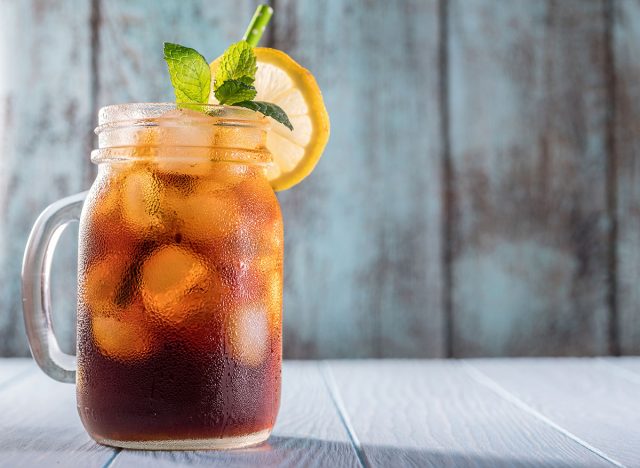
You might rationalize that ordering a large, sweet tea is better than a soda—it’s tea after all—but beware; those big glasses of sweetened iced tea are very, very sweet with some containing upwards of 50 grams of sugar, which is not great for diabetics.
A meta-analysis of 11 studies published in Diabetes Care found that people who drank just one to two servings of soda (or other sugar-sweetened beverages like sweet tea) daily had a 26% greater risk of developing type 2 diabetes than people who drank one or fewer sodas per month.
“Soda, sweet tea, juices, and other sugar-sweetened beverages are easy to overconsume because liquids don’t make us feel satisfied the way solid foods do,” says registered dietitian nutritionist Christine Milmine, RDN, founder of Plant Powered You. Also, having a sweetened tea or can of soda with lunch can easily become a habit you don’t think much about. But the impact on your body can be significant.
Starting your day with a blended coffee drink
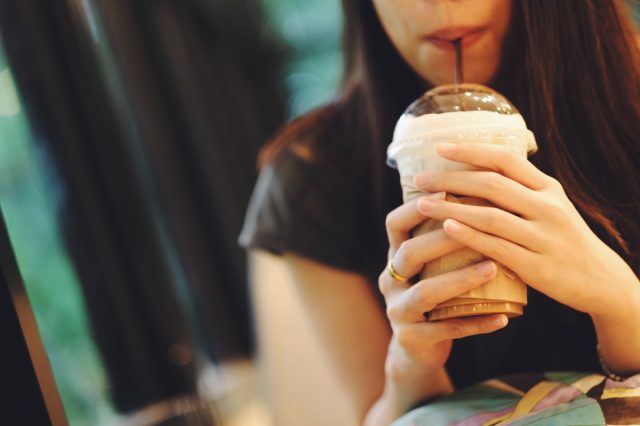
You may need to rethink your energizing morning beverage if you have diabetes. For example, a Starbucks Java Chip Frappuccino Blended Beverage packs 60 grams of sugar and 440 calories in a 16-ounce Grande (that’s the middle-size cup). Making a habit of drinking those coffees with squirts of sweet flavorings and fatty creamers increases your likelihood of gaining weight, says Trista Best, MPH, RD, a registered dietitian with Balance One, and that excess weight can make blood sugar levels even harder to control in those with diabetes.
Adding Too Much Fruit to Your Smoothies
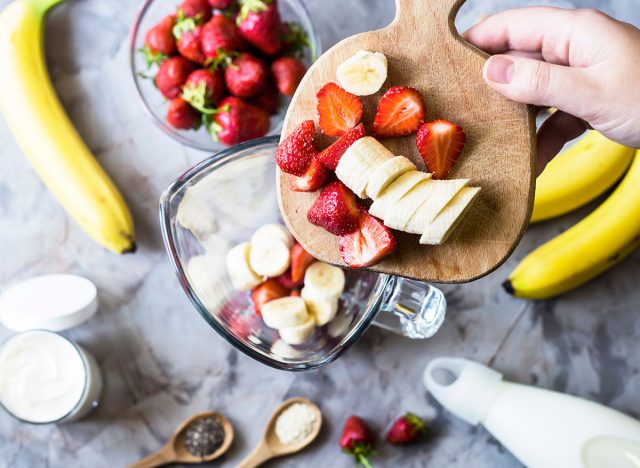
Drinking homemade smoothies can be helpful to people with prediabetes or type 2 diabetes if they are used as meal replacements or as part of some sort of fasting plan. Made the right way, smoothies can stifle cravings and help you manage calories. Made the wrong way, and they can backfire on you.
What’s the wrong way? “One common mistake is adding too much fruit,” warns Brenda Davis, RD, a nutritionist and author of Nourish: The Definitive Plant-Based Nutrition Guide for Families and The Kick Diabetes Cookbook. Overloading a smoothie with fruit can trigger a fructose overload in your bloodstream akin to the kind you get from a sugar-sweetened beverage.
Davis recommends keeping fruit to a minimum (just enough to provide some sweetness; a handful of blueberries is ideal because berries deliver a boost of antioxidants. The second big mistake is drinking smoothies that don’t contain enough nutrients, a little healthy fat, and hunger-satisfying protein. “Make smoothies nutrient-dense by adding dark greens, other vegetables (carrots, cucumber, celery, sprouts), and protein sources (hemp seeds, soft tofu, soy milk, frozen peas, peanut butter),” she says.
Juicing
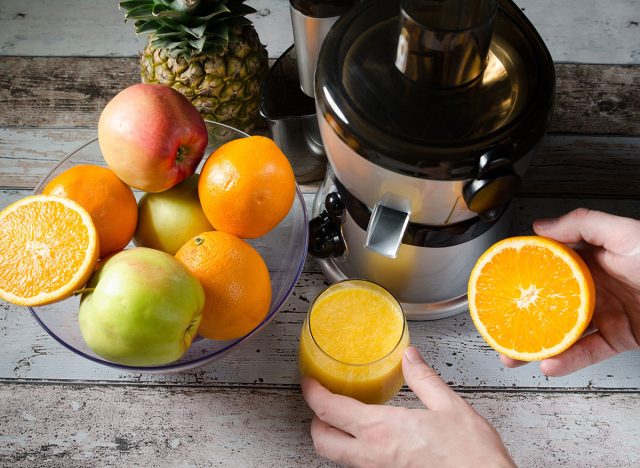
Sounds healthy, right? You dump a bunch of fresh fruits into a juicer and turn it into a glass of pure health. “But all-natural juice is full of sugar,” says registered dietitian nutritionist Laura Krauza, MS, RDN/LDN, founder of Waistline Dietitian. Consider this: a cup of fresh-squeezed orange juice, a breakfast staple, has about 20 grams of sugars, not much less than a cup of Coca-Cola at 25 grams.
What’s more, juicing removes most of the fiber in fruits and vegetables, which would slow the absorption of the sugars into your bloodstream. That’s why nutritionists recommend those diagnosed with diabetes eat whole fruit and vegetables over juicing them.
Never Missing Friday Happy Hours
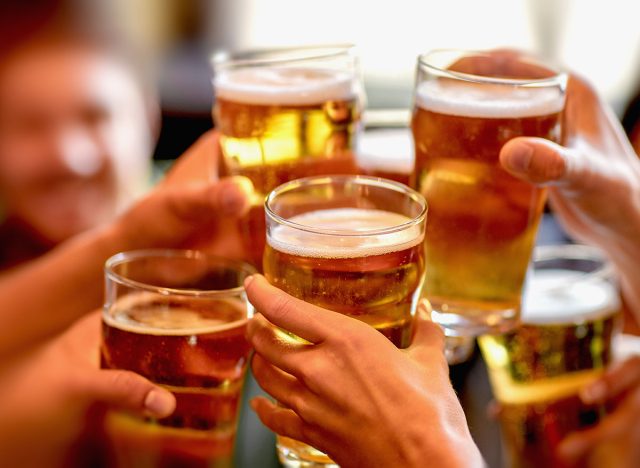
Some research suggests that a daily alcoholic drink may actually improve insulin sensitivity but check with your doctor before prescribing yourself a couple of G&Ts. If you are diabetic and taking insulin or other common medications used to treat type 2 diabetes, drinking alcohol can cause a significant dip in your blood sugar (called hypoglycemia) and trigger a rapid heartbeat, sleep disturbances and other health issues.
If you don’t have diabetes, drinking alcohol regularly can lead to type 2 diabetes because they may be high in calories and many types of cocktails are high in sugars, says certified diabetes educator Brenda Peralta, RD, a dietitian with FeastGood.com.

